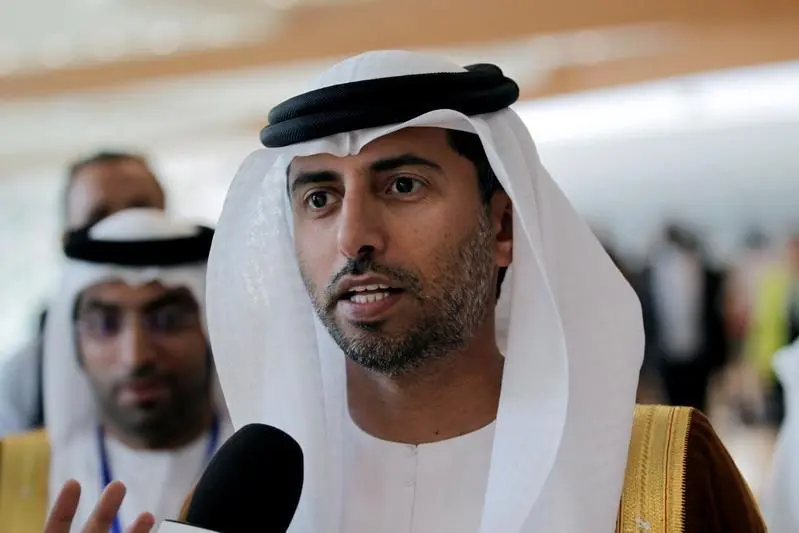PHOTO
20 April 2017
A resurgence of growth in shale oil output will not be a threat to the recovery in the oil market, the energy minister of the United Arab Emirates said at a media forum held in Abu Dhabi.
Shale producers in the United States are plotting to expand production, following the recovery in oil prices, creating a new challenge for members of the Organization of the Petroleum Exporting Countries (OPEC) as they compete for market share and put downward pressure on oil prices in 2017.
“In the short term speaking, I don’t see that shale revival would be a threat, but it will slow down the pace of stabilizing the market,” Suhail Mohammed Faraj Al Mazroui, the UAE’s minister of energy said at The 3rd GCC Petroleum Media Forum.
While Al Mazroui said the growth in shale oil production was expected, he added that it should be at a reasonable level and take into consideration the stability of the market as a whole.
“We understand that the U.S. market is an open one, but we always warn of not taking other oil producers into consideration. It won’t be fair not only for OPEC countries, but all the other countries that cooperated with us to reach the agreement to curb oil output .We sacrificed because we care about market balance and this should not be taken for the advantage of one party 100 percent,” he said.
Analysts were divided on how the boost in shale production will impact the wider market and efforts to balance the market.
"This long lead-time wave of projects and a short-cycle revival, led by U.S. shales, could create a material oversupply in 2018-19," Goldman's equity research team said last month, Reuters reported.
However, rival Morgan Stanley said it believed that a surge in U.S. production this year will not derail OPEC’s goal to rebalance the market.
"OPEC has successfully constrained output, and although drilling activity in U.S. shale is picking up rapidly, this will probably not come quick enough to prevent a period of sizeable inventory draws late this year," Morgan Stanley was quoted as saying in a Reuters’ article earlier this month.
© Zawya 2017
A resurgence of growth in shale oil output will not be a threat to the recovery in the oil market, the energy minister of the United Arab Emirates said at a media forum held in Abu Dhabi.
Shale producers in the United States are plotting to expand production, following the recovery in oil prices, creating a new challenge for members of the Organization of the Petroleum Exporting Countries (OPEC) as they compete for market share and put downward pressure on oil prices in 2017.
“In the short term speaking, I don’t see that shale revival would be a threat, but it will slow down the pace of stabilizing the market,” Suhail Mohammed Faraj Al Mazroui, the UAE’s minister of energy said at The 3rd GCC Petroleum Media Forum.
While Al Mazroui said the growth in shale oil production was expected, he added that it should be at a reasonable level and take into consideration the stability of the market as a whole.
“We understand that the U.S. market is an open one, but we always warn of not taking other oil producers into consideration. It won’t be fair not only for OPEC countries, but all the other countries that cooperated with us to reach the agreement to curb oil output .We sacrificed because we care about market balance and this should not be taken for the advantage of one party 100 percent,” he said.
Analysts were divided on how the boost in shale production will impact the wider market and efforts to balance the market.
"This long lead-time wave of projects and a short-cycle revival, led by U.S. shales, could create a material oversupply in 2018-19," Goldman's equity research team said last month, Reuters reported.
However, rival Morgan Stanley said it believed that a surge in U.S. production this year will not derail OPEC’s goal to rebalance the market.
"OPEC has successfully constrained output, and although drilling activity in U.S. shale is picking up rapidly, this will probably not come quick enough to prevent a period of sizeable inventory draws late this year," Morgan Stanley was quoted as saying in a Reuters’ article earlier this month.
© Zawya 2017





















